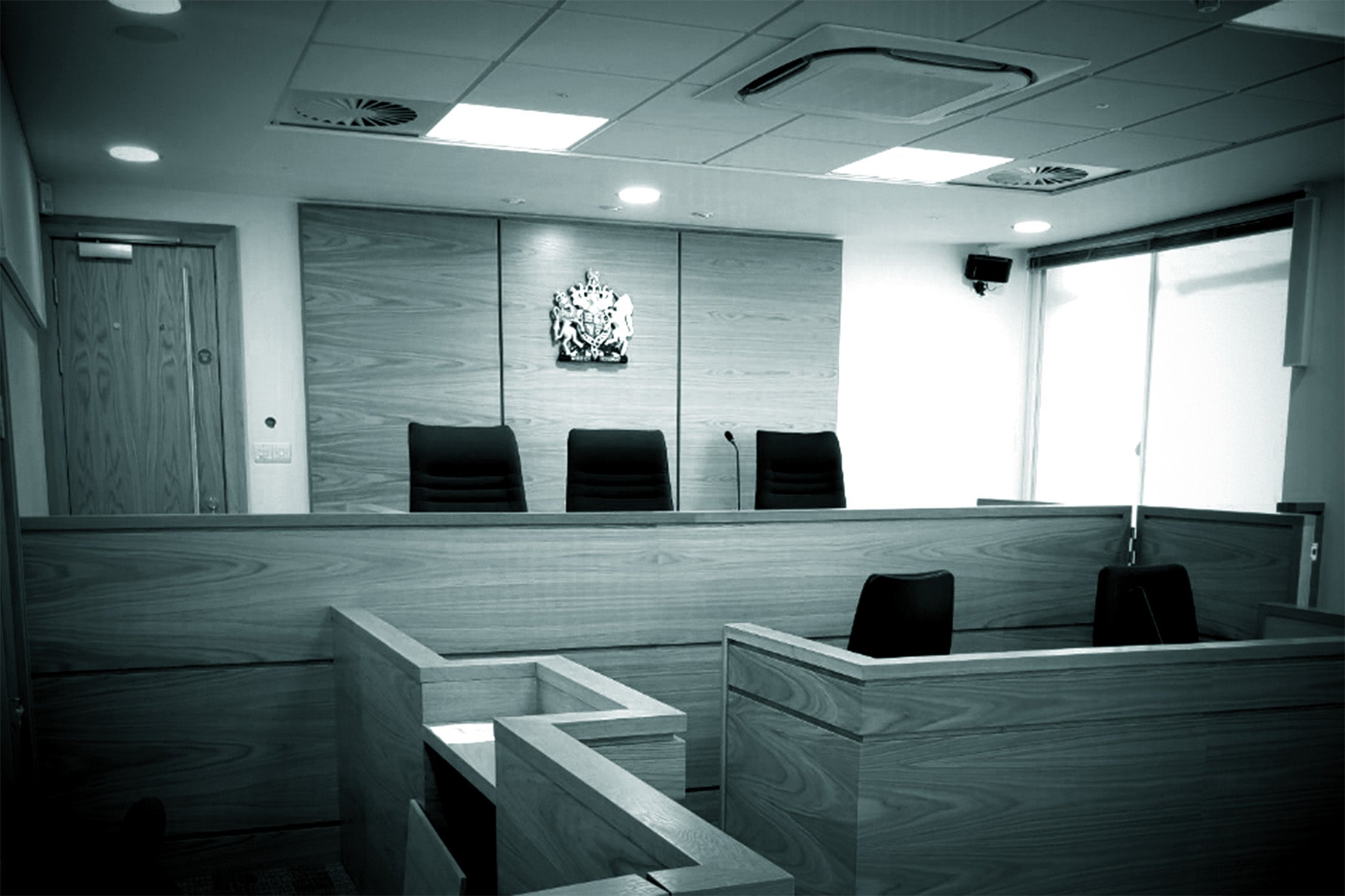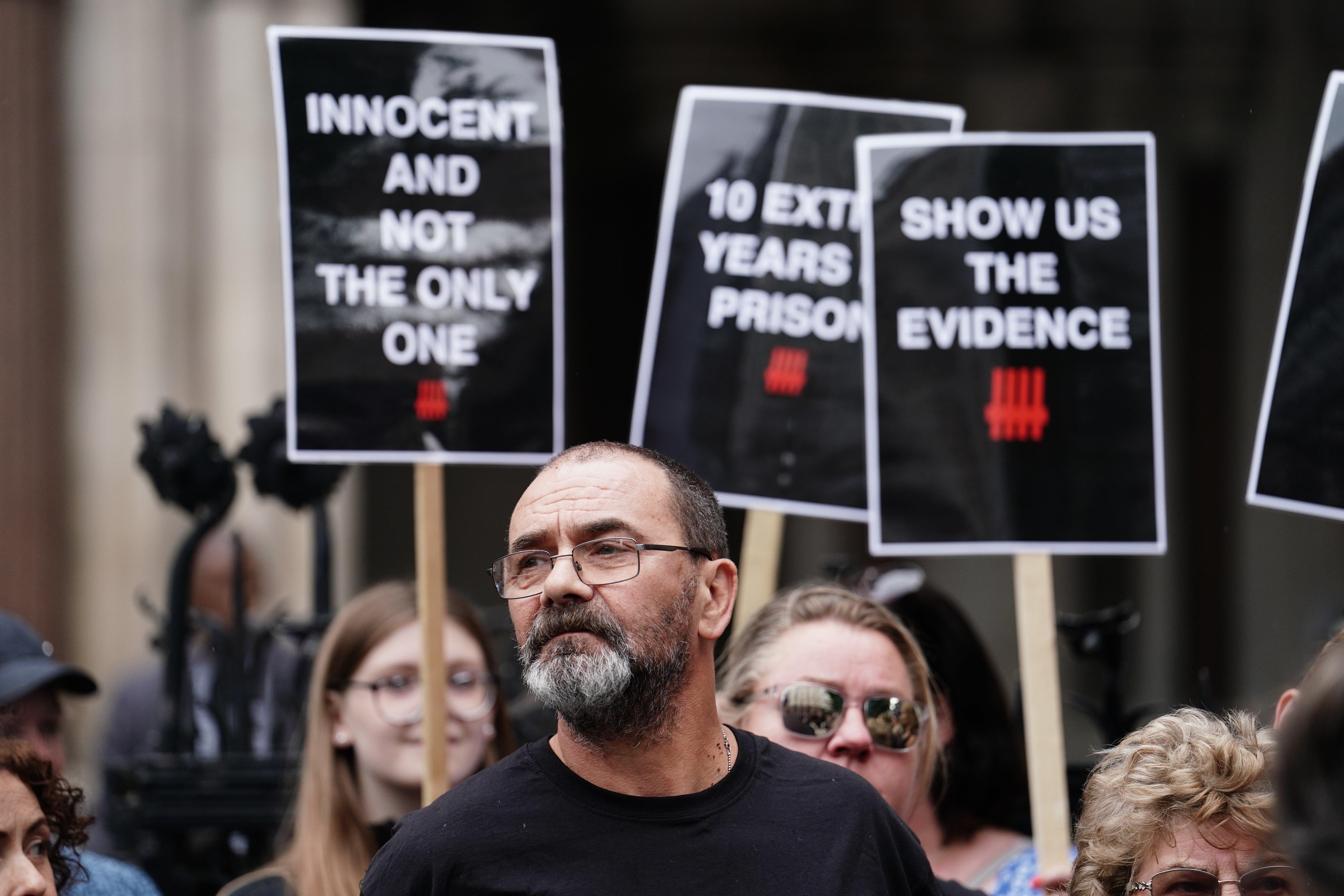Surge in backlog of wrongful conviction appeals at under-fire watchdog
Exclusive: Over 1,000 cases involving alleged miscarriages of justice awaiting permission to appeal

Your support helps us to tell the story
From reproductive rights to climate change to Big Tech, The Independent is on the ground when the story is developing. Whether it's investigating the financials of Elon Musk's pro-Trump PAC or producing our latest documentary, 'The A Word', which shines a light on the American women fighting for reproductive rights, we know how important it is to parse out the facts from the messaging.
At such a critical moment in US history, we need reporters on the ground. Your donation allows us to keep sending journalists to speak to both sides of the story.
The Independent is trusted by Americans across the entire political spectrum. And unlike many other quality news outlets, we choose not to lock Americans out of our reporting and analysis with paywalls. We believe quality journalism should be available to everyone, paid for by those who can afford it.
Your support makes all the difference.The backlog of people left waiting to know whether they will be allowed to reappeal an alleged miscarriage of justice has soared by nearly half in just four years, The Independent can reveal.
As the gatekeeper over which cases can be returned to the Court of Appeal, the Criminal Case Review Commission (CCRC) came under fire this year after a damning review found its failures may have kept Andrew Malkinson behind bars for up to 10 extra years on a wrongful conviction of rape.
Fuelling further concern over the vital watchdog’s performance, new figures now reveal that the number of cases awaiting a verdict by the CCRC – all of which involve people alleging they were wrongfully convicted or sentenced – soared from 700 to more than 1,010 in the space of just four years.
And the new data disclosed by the Ministry of Justice shows the CCRC has failed to refer more than 33 cases back to the Court of Appeal in any of the past three years – while simultaneously refusing over 1,000 applications every year.

Matt Foot, co-director of Appeal, the charity which helped Mr Malkinson overturn his conviction in 2023 after 17 years in prison, expressed alarm at the “disturbing” rise in the number of cases backlogged within the CCRC and the “consistently very low” rates of referral to the courts.
The new figures raise “pressing concerns” about whether the CCRC is failing to comply with its core mission and statutory purpose “to refer cases where new evidence comes to light which might have made a difference to the jury’s verdict”, he warned, citing the Malkinson inquiry’s chair Chris Henley KC.
Mr Henley’s review – which, upon its conclusion in July, saw the new justice secretary Shabana Mahmood call for CCRC chair Helen Pitcher to resign – uncovered a series of “serious” failings which prevented Mr Malkinson from being freed, after first applying to the CCRC in 2009.
These included a refusal to refer his case for appeal in 2009 despite DNA evidence making clear “he might be innocent”, and the discovery that the CCRC was mulling rejecting his application for a third time in 2022 despite new forensic evidence gathered by Appeal which ultimately saw him exonerated.

Prior to the CCRC being established in 1997, the only mechanism for a case which had already been heard by the Court of Appeal to be sent back to the courts was via a direct plea to the home secretary or Northern Ireland secretary.
But despite its vital role, the new figures, disclosed in response to a parliamentary question by Tory peer Lord Northbrook, show that the CCRC referred just 20 cases on to the Court of Appeal in 2023, while rejecting or closing nearly 1,500 applications that year.
Just 19 cases were forwarded to the courts in the first eight months of 2024, while 969 applications were rejected or closed in that period.
Kirstie Moore, who is campaigning for her brother Jason’s murder conviction to be overturned, hit out at the “hamster wheel” facing families who are repeatedly referred back to the CCRC when they ask their MP for help, despite a string of recent failings at the beleaguered body.

“The CCRC is supposed to protect you from the British justice system that has failed you,” she said, noting that the Henley report found it has become an organisation that looks for reasons to uphold a conviction rather than reasons to challenge them.
“They are looking at ways to stop you going to the court of appeal rather than looking at new evidence that would get you to the court of appeal. How sad is that?”
The campaigner she was tired of hearing excuses about underfunding, adding: “Just do your sodding job properly. Read what’s being put in front of you. Once case at a time, but let’s help these men that are innocent in prison.”
A CCRC spokesperson said: “Our role is to find and investigate potential miscarriages of justice, and everyone in the team is passionate about carrying out this challenging work.
“There has been an increase in the number of applications to us. Five years ago, we received 1,371 applications, last year we received more than 1,600.
“The CCRC has received more than 31,000 applications in its 27-year history and made more than 840 referrals to the appellate courts. Hundreds of people have seen their convictions quashed because of a CCRC referral.
“We encourage anyone who believes they are a victim of a miscarriage of justice to apply to us.”
With a panel having been put in place in July to consider Ms Pitcher’s removal as CCRC chair, a Ministry of Justice source told The Independent that, “in due course, the Lord Chancellor expects a full and thorough review of how the CCRC operates in line with the Henley report”.
Join our commenting forum
Join thought-provoking conversations, follow other Independent readers and see their replies
Comments